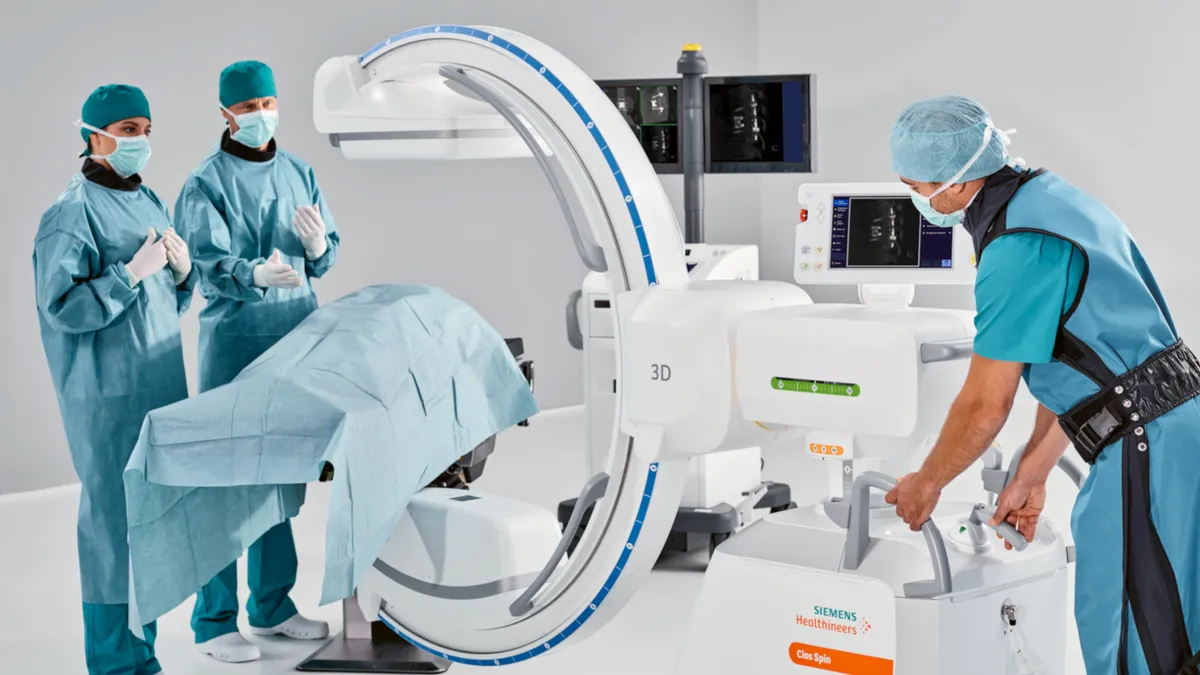Dive Brief:
- Sales and margins fell at Siemens Healthineers in its third quarter as the company contended with lockdowns in China, declining COVID-19 testing sales and rising procurement costs.
- Lower COVID-19 antigen test sales drove the 5.7% fall in revenue. Excluding the impact of COVID-19 tests, sales rose 0.9%, reflecting 8.2% growth at Varian that was offset by the deferral of revenue in China as a result of lockdowns that limited access to customer sites.
- Shares in the company fell 8% in the wake of the results but management expects to bounce back in its fourth quarter, forecasting a steep increase in revenue that will enable it to hit its outlook for the full year.
Dive Insight:
Investors expected COVID-19 test sales to fall in the quarter but the magnitude of the other headwinds was a surprise. Lockdowns in China were a particular issue, causing a high teens-percentage decline in equipment order intake and a big setback to the core diagnostic business. Talking to investors on a conference call to discuss the results, Siemens Healthineers CEO Bernd Montag said he is “very, very sure that ... we will make up for it in the quarters to come.” Management sees the diagnostic performance as in line with industry trends.
“You saw a flattish development in Roche, you saw a declining revenue line in Abbott and we also saw declining COVID-related tests besides antigen. We were maybe slightly weaker than the two others but still, I would say, in line with this trend,” Siemens Healthineers CFO Jochen Schmitz told investors.
The business also suffered from rising procurement and logistics costs, which contributed to a decline in adjusted margins from 18.8% to 14.7%. Like other medtech companies, Siemens has had to buy some components at spot prices and has been affected by the rising cost of logistics services. Supply chain issues, such as the shipment of components from Shanghai, were also a factor in the deferred revenue.
For some medtech companies, disruption to the supply of semiconductors has been among the biggest procurement problems. Montag, however, gave an upbeat assessment of Siemens’ handling of the chip situation.
“We feel pretty good about it,” the CEO said. “Our scale, but also the preferential treatment as a company in the healthcare business, has always helped us. In addition, we have many core competencies in house when it comes to medical electronics, when it comes to the next level of component assembly, so that we can also maybe in a more agile way switch from one sub-component to the other than possibly others can. I don't see the situation worsening at the moment.”
With an equipment book-to-bill ratio of 1.31, Siemens framed the results as a “strong quarter” that were overshadowed by short-term problems that raised costs and prevented the realization of revenue. The prospect of more of the backlog converting in the fourth quarter led Siemens to retain its forecast of 5.5% to 7.5% full-year revenue growth. The company assumes procurement and logistics costs will rise further.
The prospect of a winter energy shortage adds another concern for European-based companies such as Siemens, but the CEO said the company is insulated from the threat.
“We are pretty independent of all this,” Montag said. “We are not an energy intensive company. So, this is not a concern. There is nothing in our sites which could be at risk because of gas shortages. This is simply not the nature of the business.”









